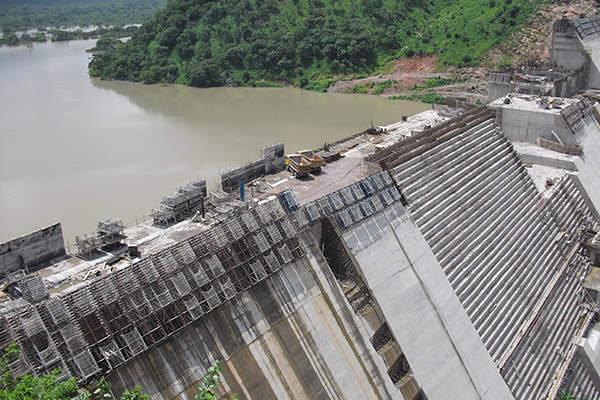
A study by the Institute for Energy Security (IES) has shown that excessive dispatch of the Bui power facility forced the reservoir to drop to its lowest end-December level of 172.22 meters, in three years.
This is despite the reservoir elevation at the start of 2020 being at 180.33 meters (3.32 meters above 2019 level).
The study said the over-reliance on the facility for power supply has caused the Bui Hydro-electric plant, which is supposed to be a peak-shaving plant, to operate below the recommended minimum operating water elevation of 168 meters above sea level (masl), since mid-March this year.
Due to the non-adherence to the initial power supply recommendation for 2020, the Bui reservoir elevation dropped to a minimum of 166.82 at the end of May 2021, the lowest recorded since the Bui dam was constructed.
Data captured from the 2021 Electricity Supply Plan shows that the total hydroelectricity generated for 2020 was 7,293.23 gigawatt-hour (GWh) as against the projected of 6,897.2 GWh. This consisted of 5,164.45 GWh, 862.25 GWh, and 1,269.52 GWh from Akosombo, Kpong, and Bui hydropower facilities respectively.
Further analysis of the data revealed that although the Bui power generation (GS) station was projected to supply 764 GWh to the National Interconnected Transmission System (NITS) for 2020, the actual supply came up to 1,260 GWh, a deviation of 65 percent from the initial plan. The Power Planning Technical Committee (PPTC) revised the initial planned 764 GWh to 1,218 GWh during the mid-year review of the 2020 Electricity Supply Plan, since the facility had to produce more than anticipated, to fill a supply deficit from other power plants.
First, seeing that the drop in elevation below the recommended minimum operating water level was due to over-drafting of the Lake to make up for the power supply deficit, the most appropriate measure is to look beyond the Bui facility for peak-shaving this year. Additionally, the Bui facility has to be dispatch in a manner that adequate water could be stored in the reservoir during the 2021 inflow season.
Second, noting that the projected total annual hydro generation for 2021 is 7,001 GWh consisting of 5,650 GWh from Akosombo GS, 850 GWh from Kpong GS, and 501.2 GWh from Bui GS; fuel supply for thermal plants would be key in determining the reliability of power supply in 2021. It is therefore recommended that there should be proper coordination to ensure adequate provision of fuels such as Natural gas, Light Crude Oil, and Heavy Fuel Oil for the thermal plants, which are expected to generate over 66 percent of the power required for 2021.
Source: IES

